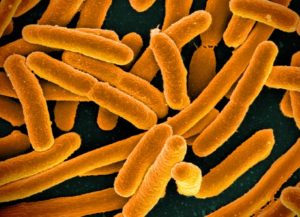Probiotics are getting a lot of attention lately and for good reason. Probiotics have been shown to:
- Strengthen immune system
- Improve digestion function & nutrient absorption
- Aid in healing of leaky gut
- Kill Candida and bad bacteria
- Enhance synthesis of vitamin B12, vitamin K2 and calcium
- Support digestion of difficult substances such as gluten and casein
However, when something gets the attention of the masses we have to cautious of gimmicks and placebos. Probiotics are no exception and it can be tough to be confident you’re getting the best product – but not anymore! Use this Probiotics Buying Guide to help you choose the best probiotics to suit your health needs.
What to Look For…
Dosage – Per product, probiotic recommended dosages can range from 1-3x per day. Choose which one you can tolerate and stick with. Taking daily probiotics can be more beneficial than taking a daily multi-vitamin! So it’s important to choose a dose you can take regularly.
Need of refrigeration – Ideally it is best to keep probiotics refrigerated. According to Consumer Labs many probiotic bacteria are naturally sensitive to heat and moisture. Heat can kill organisms and moisture can activate them within pills, only to die due to lack of nutrients and a proper environment. However, most probiotics that are in pill or capsule form have been freeze-dried and packaged in a way to prevent moisture. Therefore most pill or capsule form probiotics do not need refrigeration. If not refrigerated, and because heat can kill organisms within the capsules, they should not be exposed to heat above room temperature. Above all, when in doubt – refrigerate.
Duration of shelf-life – Capsule or pill form probiotics have a longer shelf-life than products containing live cultures, such as yogurts and drinks like Kombucha or kefir. However, both live & pill-form probiotics are beneficial & both should be consumed for a healthy gut and strong immune system.
Expiration date – Make sure you have enough time to finish the probiotics before the noted expiration date.
Can survive stomach acid so that it reaches the small intestine – The beneficial bacteria found in probiotics do not have any benefit until they arrive and stay in the small intestines. Look for labels that state that the bacteria will survive stomach acid.
Billions & Billions – in order for the probiotics to effectively create colony formations in the GI tract, the probiotic must contain many billions, not millions, of beneficial bacteria.

Which Strains are Right for You?
Each strain has a unique job that helps in different (and some the same) areas of our health. If you struggle with Candida, traveler’s diarrhea, or you want to support colon health or simply boost your immune system, etc. it’s beneficial to make sure your probiotic contains the strains that can support the areas you’re looking to improve. All probiotic strains are beneficial & every product should contain multiple types of strains. Here is a brief list of the common probiotic strains you will see when shopping for a probiotic.
| Strain | Actions |
| Bifidobacterium bifidum | Strengthens GI immunity |
| Bifidobacterium lactis | Promotes colon health |
| Bifidobacterium infantus | Decreases symptoms of IBS |
| Bifidobacterium breve | Antibiotic-associated diarrhea |
| Prevents infection in infants w/ necrotizing enterocolitis | |
| Lactobacillus paracasei | May inhibit Candida Albicans |
| Lactobacillus acidophilus | May reduce traveler’s diarrhea |
| Lactobacillus casei | Improves immunity |
| Lactobacillus GG | Reduces travelers diarrhea, spread of Candida; may reduce food allergies, eczema antibiotic associated diarrhea |
| Lactobacillus plantarum | Can reduce pain, constipation, bloating in IBS patients |
| Lactobacillus reuteri | Shortens duration of gastroenteritis |
| Lactobacillus rhamnosus | Shortens duration of gastroenteritis |
| Lactobacillus rhamnosisa | Shortens duration of gastroenteritis, reduced gastroenteritis with chemotherapy |
| Lactobacillus salivarius | Treats symptoms of Helibacter pylori |
| Lactobacillus, Bifidobacterium | Aids in chronic pouchitis |
| Saccharomyces boulardi (yeast) | Relieves digestive disorders, especially diarrhea; used to treat C. difficile infection |
| S. Thermophilus | May reduce travelers diarrhea |
Did this article help? What questions do you have? Let me know, here!
References:
Internation Scientific Association for Probiotics and Prebiotics http://www.isapp.net
Probiotic advisor search (free trial before subscription is necessary) https://www. probioticadvisor.com
National Institutes of Healthy, National Center for Complementary and Alt Medicine. Oral probiotics: an introduction. NCCAM Web site. http://nccam.nih.gov
Minocha A. Probiotics for preventive healthy. Nutr Clin Pract. 2009;24(2):227-241
Rohde CL, Bartolini V. Jones N. The use of probiotics in the preventions and treatment of antibiotic-associated diarrhea with special interest in C. Diff-associated diarrhea. Nutr Cin Pract. 2009:24(1):33-40
Bermudez-Brito M, Plaza-Diaz J, Munoz-Quezada S, Gomez-Llorente C, Gil A. Probiotic mechanisms of action. Ann Nutr Metab. 2012; 61(2): 160-174


